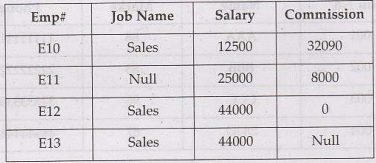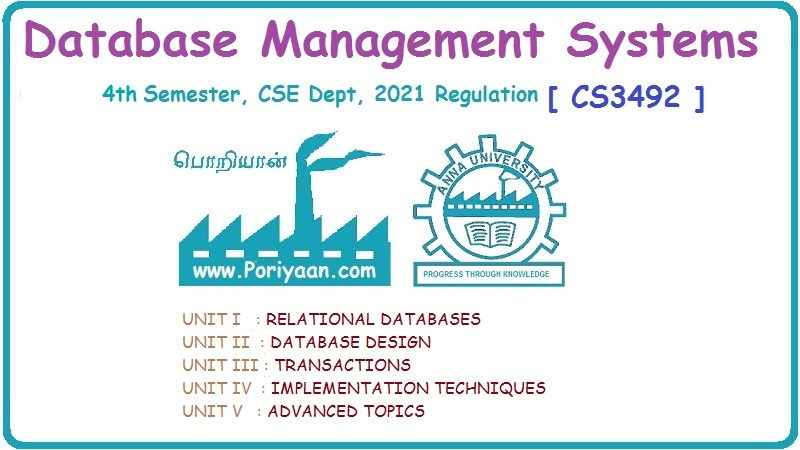Database Management System: Unit I: Relational Databases
Relational Model
Relational Databases - Database Management System
In relational model, table is a collection of data items arranged in rows and columns. The table cannot have duplicate data or rows. Below is an example of student table
Relational
Model
There are some commonly used terms in Relational Model and those are -
Table or relation: In relational model, table is a collection of data
items arranged in rows and columns. The table cannot have duplicate data or
rows. Below is an example of student table

Tuple or record or row: The single entry in the table is called tuple. The tuple
represents a set of related data. In above Student table there are four tuples.
One of the tuple can be represented as

Attribute or columns: It is a part of table that contains several records. Each record can be
broken down into several small parts of data known as attributes. For example
the above table consists of four attributes such as RollNo,Name,Marks and
Phone.
Relation schema: A
relation schema describes the structure of the relation, with the name of the
relation (i.e. name of table), its attributes and their names and type.
Relation Instance: It refers to specific instance of relation i.e. containing
a specific set of rows. For example - the following is a relation instance -
which contains the records with marks above 80.

Domain: For each
attribute of relation, there is a set of permitted values called domain. For
example - in above table, the domain of attribute Marks is set of all possible
permitted marks of the students. Similarly the domain of Name attribute is all
possible names of students.
That means Domain of Marks attribute is (88,83,98)
Atomic:The domain is
atomic if elements of the domain are considered to be indivisible units. For
example in above Student table, the attribute Phone is non-atomic.
NULL attribute: A null
is a special symbol, independent of data type, which means either unknown or
inapplicable. It does not mean zero or blank. For example - Consider a salary
table that contains NULL

Degree: It is
nothing but total number of columns present in the relational database. In
given Student table –

The degree is 4.
Cardinality: It is total number of tuples present i in the
relational database. In above given
table the cardinality is 3
Example 1.9.1 Find out following for given Staff table
i) No of Columns
ii) No of tuples
iii) Different attributes
iv) Degree
v) Cardinality

Solution:
i) No of Columns = 6
ii) No of Tuples = 3
iii) Different attributes are StaffID, Name, Sex, Designation, Salary,
DOJ
iv) Degree Total number of columns = 6
Database Management System: Unit I: Relational Databases : Tag: : Relational Databases - Database Management System - Relational Model
Related Topics
Related Subjects
Database Management System
CS3492 4th Semester CSE Dept | 2021 Regulation | 4th Semester CSE Dept 2021 Regulation
